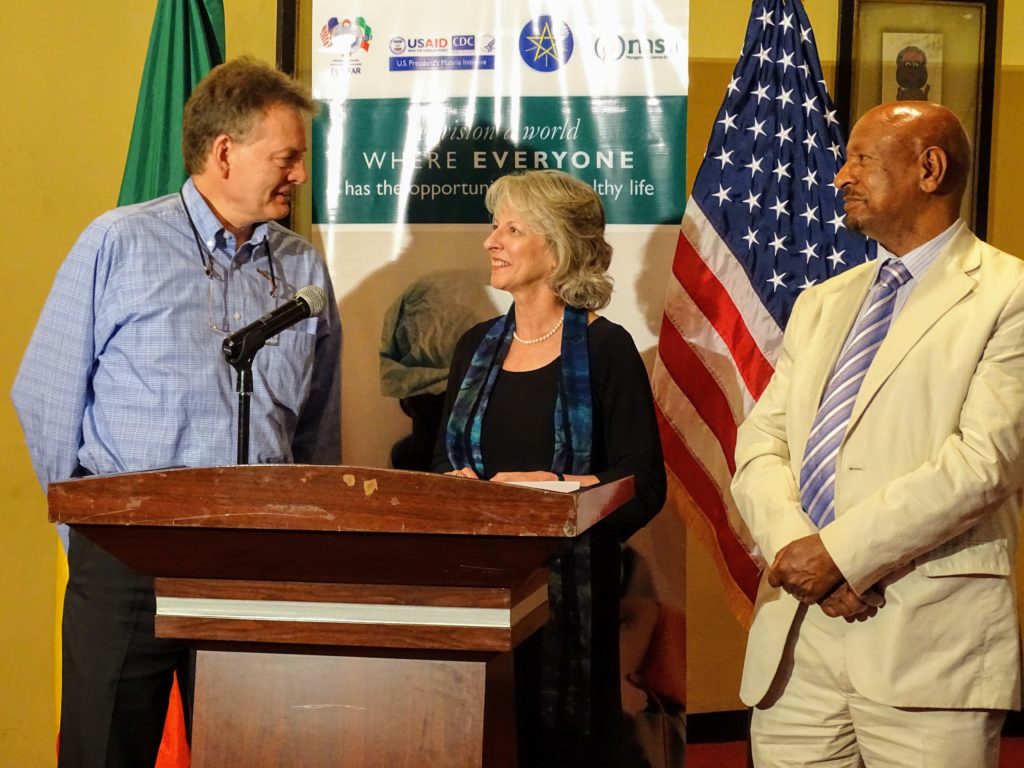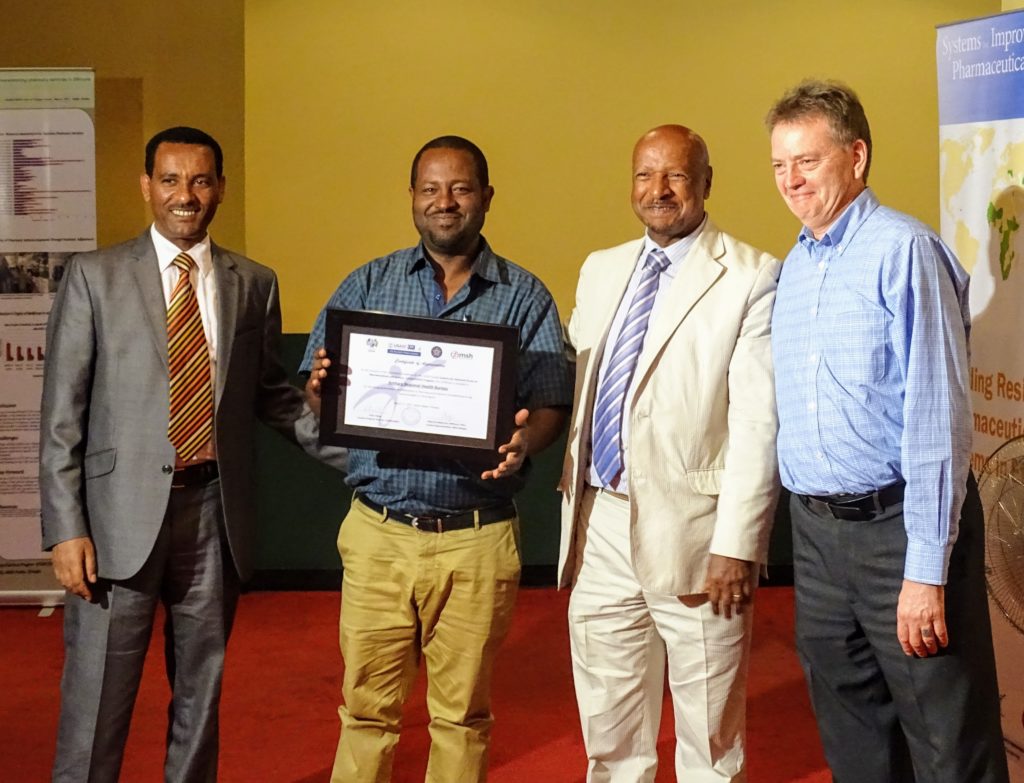On 17 March 2017, SIAPS Ethiopia held a closing ceremony in Addis Ababa. Guests from partner government and non-government organizations, USAID, universities and health facilities were present at the event and expressed their appreciation for the systems strengthening work SIAPS has done in Ethiopia.
SIAPS has been in Ethiopia for the last five years working with partners such as the Federal Ministry of Health; Food, Medicines and Health Care Administration and Control Authority; Pharmaceutical Fund and Supply Agency; regional health bureaus and other stakeholders with the overall goal of strengthening the pharmaceutical system to ensure access to medicines and quality pharmaceutical services.
In her welcoming address on the closing event, Olya Duzey, Senior Manager of the Pharmaceuticals and Health Technologies Group at MSH reflected on the achievements and impact of the global SIAPS program in improving health outcomes in more than 20 countries and how the work in Ethiopia has significantly contributed to the success of the global program.

Negussu Mekonnen, Country Representative to MSH Ethiopia gave opening remarks in which he particularly highlighted SIAPS Ethiopia’s innovative interventions that have transformed the pharmacy sector in the country into a patient-centered practice. Introduced and supported by SIAPS, the Auditable Pharmaceutical Transactions and Services (APTS) and Clinical Pharmacy Services are two major examples that have seen big success in the country.
Country Program Director to SIAPS in Ethiopia, Hailu Tadeg, provided an in-depth look into the successes and achievements of SIAPS in his presentation entitled, Reflections on Building Resilient Pharmaceutical Systems in Ethiopia. Looking back on five years of SIAPS implementation in Ethiopia, Hailu stressed on how listening to the needs of partner organizations and government authorities has been critical in the success of SIAPS in coming up with appropriate interventions.
In its lifetime in Ethiopia, SIAPS supported the training of 7720 professionals, significantly contributing toward addressing the gap in workforce in the pharmacy sector. The program also supported 77 health facilities across Ethiopia to implement APTS and Clinical Pharmacy Services, 128 facilities to establish Drug Information Services and the establishment of Drug and Therapeutic Committees at 604 health facilities of which 46 are private hospitals. SIAPS also supported more than 1,000 health facilities providing ART services to document and report pharmaceutical data in support of decision making at different levels of the health system.
Representatives from partner organizations spoke about how the support of SIAPS was instrumental in the work they do to strengthen health systems in the country. Heran Gerba, Deputy Director General to the Food, Medicines and Health Care Administration and Control Authority of Ethiopia said the technical assistance provided by SIAPS to build the Medicine Registration Information System (MRIS) has helped them fast-track the registration of essential medicines. ‘Before MRIS was developed, we used to have a big backlog for registering medicines and giving market authorization,’ Heran said, ‘we didn’t have a system in place to sort applications from clients and it took an unnecessary amount of time to process. This is what the MRIS solves and we are very thankful for SIAPS for helping us put the system in place.’

Heran also mentioned the establishment of the Health Regulatory Information Center at the Food, Medicines and Health Care Administration and Control Authority through the support of SIAPS. The center operates toll free phone lines 24 hours through which clients of the Authority and patients alike can call to inquire or report on medicines use, circulation of counterfeit and substandard medicines, unethical practices, and other health related issues. According to Heran, this has made information accessible to the public and increased transparency.
The key successes of SIAPS that were the center of discussion at the event were the introduction of innovative and appropriate interventions to strengthen the health system and the promotion of access to essential medicines and services in Ethiopia. BethAnne Moskov, the office chief for USAID’s health office in Ethiopia said, ‘The work SIAPS did in Ethiopia with the result of putting patients at the center of the health care system is worth imitating in other parts of the world. This is what USAID strives for – supporting interventions that are sustainable and can be replicated in other parts of the world that may need it.’
The closing event was concluded by awarding certificates of appreciation to partner institutions in recognition of their valuable collaboration during the implementation of SIAPS in Ethiopia.
— Tsion Issayas, SIAPS Communications Manager, Addis Ababa

